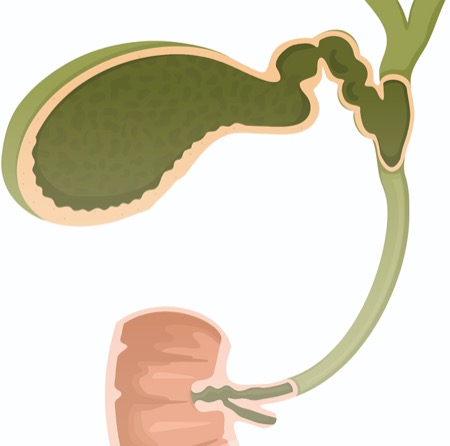San Francisco—Antibiotics can be administered without compromising treatment efficacy in patients receiving a durvalumab-based regimen for advanced biliary tract cancer, researchers reported at the 2023 ASCO Gastrointestinal Cancers Symposium (abstract 550).
The researchers analyzed data from a large study of patients treated with durvalumab (Imfinzi, AstraZeneca) plus chemotherapy or placebo plus chemotherapy and found there was no difference in the growth, spread or worsening of cancer among those who received antibiotics within two weeks of a treatment dose.
“People with advanced BTC can safely be treated with antibiotics while benefiting from treatment with durvalumab plus chemotherapy,” according to lead author Aiwu He, MD, PhD, an associate professor in the Division of Hematology and Oncology at Georgetown-Lombardi Comprehensive Cancer Center, in Washington, D.C., and his co-investigators.
Prior research has indicated that antibiotic use during treatment with immune checkpoint inhibitors reduces response rates and shortens overall survival (OS) and progression-free survival (PFS) (Int J Infect Dis 2021;106:142-154). To determine whether this was the case with durvalumab, Dr. He and colleagues performed an exploratory subgroup analysis of data from the TOPAZ-1 trial, results of which have been published (NEJM Evid 2022;1[8]). The double-blind, phase 3 study included 685 patients with advanced BTC who were randomized to undergo treatment with a regimen based on cisplatin and gemcitabine and either durvalumab or placebo.
In the current analysis, Dr. He’s team looked at the roughly 49% of participants in both study arms who had received at least one dose of antibiotics within a two-week period before or after a durvalumab or placebo dose. Multivariate analyses accounted for cancer resectability status, recurrence and primary tumor location.
The investigators found that median OS was 12.6 months among durvalumab patients who received antibiotics (95% CI, 9.7-14.8 months), compared with 13 months among durvalumab recipients who did not undergo antibiotic treatment (95% CI, 10.8-14.7 months).
Similarly, there was no significant difference in median OS between the placebo group who used antibiotics (10.3 months; 95% CI, 8.7-12.5 months) and placebo recipients who did not (12.1 months; 95% CI, 11-13.8 months).
Additionally, OS hazard ratios (HRs) in the durvalumab group and placebo group were not significantly different when antibiotics were used (HR, 0.78; 95% CI, 0.59-1.02 for durvalumab and HR, 0.81; 95% CI, 0.62-1.07 for placebo).
Finally, median PFS was 7.3 and 7.2 months among durvalumab patients who did or did not receive antibiotics, respectively, and 5.7 and 6.1 months for placebo recipients who did or did not receive antibiotics, respectively.
—David Wild
Dr. He reported no relevant financial disclosures.
This article is from the May 2023 print issue.




